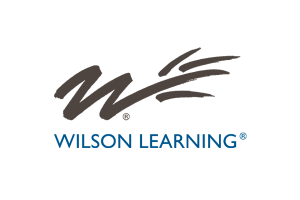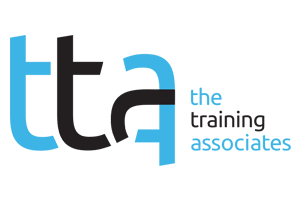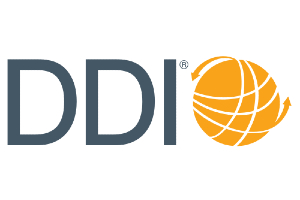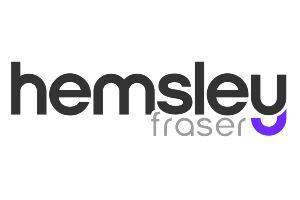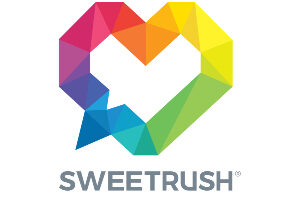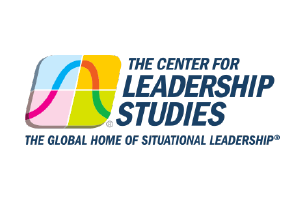Leadership can make or break organizational success. In a crisis, this is even more true. Companies need leaders who can guide them through these turbulent times and into the future.
To learn more about leading during a crisis, we spoke with Maureen Metcalf, chief executive officer of the Innovative Leadership Institute and host of the podcast “Innovative Leadership, Co-Creating Our Future.”
Listen now to learn more on:
- Best practices for effective crisis leadership training.
- The skills leaders need to not only survive but thrive during a crisis.
- How leaders can remain agile during times of crisis.
Complete the form below to view an animated video about this episode:
Additional Resources:
- “Leading During a Crisis: Retooling Leadership,” by Maureen Metcalf
- Assessment: Seven Leadership Skills Required to Succeed During Disruption and Innovation
- Agile Certification for HR and L&D
- Training Industry Magazine – Agile Learning
- The Business of Learning, Episode 27: Inclusive Leadership
The transcript for this episode follows:
Speaker:
Welcome to the Business of Learning: The Learning Leaders Podcast from Training Industry.
Sarah Gallo:
Hello, and welcome to The Business of Learning. I’m Sarah Gallo, an associate editor at Training Industry here with my co-host, Taryn Oesch, managing editor of digital content at Training Industry.
Speaker:
This episode of The Business of Learning is sponsored by the state of the leadership training market, a new report from training industry. Are you evaluating leadership development providers and looking for a guide on how to select the perfect partner, or benchmarking your investments in leadership training? The new Training Industry research report, The State of the Leadership Training Market, has all the insights necessary to keep you and your business primed for success. With market segment intelligence derived from more than 15 years of corporate training marketplace analysis and sizing, The State of the Leadership Training Market shares data on an adaptive and innovative sector of the market.
It also provides exclusive information on changes in the market due to COVID-19, to help you make up to the minute informed decisions. To download your copy, visit store.trainingindustry.com and use the discount code podcast, for 10% off The State of the Leadership Training Market report. Once again, visit store.traininginindustry.com and use the discount code podcast.
Sarah Gallo:
Leadership can make or break organizational success. In a crisis, this is even more true. Companies need their leaders to guide them through these turbulent times and into the future. To learn more about leading during a crisis, we’re speaking with Maureen Metcalf, chief executive officer of the Innovative Leadership Institute and host of the podcast, Innovating Leadership, Co-Creating Our Future. Maureen, welcome.
Maureen Metcalf:
Hi, thank you so much for including me in your esteemed podcast.
Taryn Oesch:
Thank you. To get started, why don’t you explain how leading during a crisis looks different from leading during more normal times?
Maureen Metcalf:
I base most of my responses on the developmental theory that was developed and refined by Bob Kegan at Harvard, Susanne Cook-Greuter, Bill Torbert, so as I’m making reference to these things, it is based on significant research data, not just my opinion. The kind of leadership that has been successful and has gotten us to where our country is and where the world is, has worked at more of a traditional leadership level that Torbert Reich calls in his Harvard Business Review article, the achiever. What we’re seeing now is under this crisis that leadership breaks down and he’s done extensive research on the leadership that he and the researchers, called strategist and it goes by several different names that we don’t need to get into. But their research shows that under times of significant change, this later stage of leadership called the strategist is able to implement changes that stick. So success of transformations, not only get through the crisis, but those changes are able to be sustained by the organization.
Taryn Oesch:
With that in mind, during economic times like these, achieving business results is more important — and more difficult — than ever. So, what skills do leaders need to be that kind of leader who will not only survive but thrive during a crisis?
Maureen Metcalf:
I’m going to call out seven specific competencies, and these are both mindsets and behaviors. Again, these are based on the Strategist Competency Model. I’m going to walk through an example of Dr. Fauci just to illustrate this. I realize any figure I would select at this moment is politically charged. This isn’t a political statement; it’s just, if I picked my grandmother, no one knows her, right? So, we can talk about someone that we see in the media. So, [back to the] seven competencies. The first [competency] is [to be] professionally humble, and this is more focused on getting [the] right results than notoriety. Let me step back for a second. In times of uncertainty, the traditional view of leaders [was that they operate under the impression] “I know the right answer and I’m going to set the course and help everyone get there,” [which] again breaks down because we are in a point specifically with the pandemic [where] that most people who are leading now weren’t alive during the last significant pandemic, right? We have people alive during the AIDS crisis, but not a pandemic like we have now. So, leaders are in a new place where we can’t just look to what happened last time we went through it and pull out best practices. So, this idea of being professionally humble, [recognizing that] I don’t have the right answer [is key]. I need to act like a scientist. The distinction is traditional leaders have the answers and they lead; scientists know they don’t have the answer, but they’re good scientists. So, I can formulate a well thought-out hypothesis; I can create an experiment; we implement that; we learn from it, and then we take the next experiment. So, part of the key is about being a good experimenter rather than being the person with the answer. That’s part of where the humility comes in, is [the idea that] I can engender a level of competence because I have a path forward to find the answer, not because I personally have the answer. So, I think that’s one distinction: [The] unwavering commitment to right action. Traditional leaders often led because they had large egos and that worked. So, we think of some of the charismatic leaders that we have been taught that, that’s what good leadership looks like. Again, in times of crisis, what I want to know is [that] the person I’m following is committed to right outcome, not covering mistakes. Again, this idea of “we don’t have the right answer, [and] I don’t have to cover up by making mistakes.” We all know we’re going to make decisions with insufficient information. There’s going to be as good as the sciences today, and we’re going to find out they were wrong as we go forward. But again, doing nothing is not the answer. So, I have to take the smallest, [most] incremental steps I can take, continue to build the science, take the next incremental step. Not just in medicine, but as we’re watching the pandemic and we’re in the midst of, do we open schools or not open schools. There’s no good answer. Leaving kids at home isn’t going to be helpful. Putting them in schools and having them exposed to the virus, not helpful. So, we are in a “no good answer” situation. How do we take the smallest step, learn as much as we can, and be open to and willing to course correct pretty often until we get through this situation? [The] third [competency is to be a] 360-degree thinker. It’s no longer good enough for me to think about my [individual] tasks or my processes; I’m looking across the systems. Again, let’s use the example of kids in school. I have to think about the impact of underserved communities where parents count on the school system, especially if they don’t know how to teach their kids how to learn online. Other parents, they can’t afford childcare. They have built a budget and they’re already making the trade-off between school clothes, school supplies and food, and now they have to get daycare. So [there’s some parents in these] really tough situations. As leaders in our community, they need to be thinking about all of that. Again, [the] long-term implications of how it looks like children who are infected are less likely to die, but they may have long-term health implications, including potentially breathing and cognitive challenges. So big implications of making a mistake all the way around. I have to be more of a system’s thinker. I have to be intellectually versatile, which supports the system’s thinker piece. I have to have a growth mindset. I have to be intentionally curious and gathering information that is uncomfortable to me. I have to be willing to be proven wrong, right? So I am continually learning, not just in my field, but a lot of tangential areas again, to support the idea that I’m not just making a decision immediately related to my field, but ripples through everything I do. The next gets more into the who am I versus the tasks I do, and it’s highly authentic and reflective. So if I am authentic with my people [and] I am willing to say we made mistakes, [and] I’m willing to say I don’t have the answer, but we will figure it out, [that’s important]. It’s not, I’m clueless and I’m of no value as a leader, but I am the expert in this field, we haven’t done this before, here are the resources we need to pull together, we’re going again, conduct the experiment. Then the reflective is I have to be willing to admit I made a mistake, and willing to admit when we are making a mistake, be more genuine. That does not mean I share everything. Nobody wants to hear everything that goes on in my head. No one wants to hear everything that goes on in other people’s heads. It’s the appropriate amount of information that I can still inspire and motivate people and not be a jerk, right? There’s still a line. The next is [to be] able to inspire. So, how do I build trust? How do I understand where people are struggling, meet them where they are, and genuinely demonstrate care? Especially right now, people are scared. People are having issues with depression. People are just struggling to figure out how to get through the day and make sure that they care for their families or their communities, or [make sure they] can have enough food on the table, right? So, part of inspiring people is [showing] that I understand where they’re coming from and do my best to meet them [where they are] and help them address the challenges they’re facing with true care. That again, gets back to the authentic and reflective that we are all dealing with some sort of difficulty during this crisis. Some certainly more than others. Then the last [competency] is [to be] innately collaborative. Look for ways to gather the information [and test] test my your thinking. So, collaboration means inviting people into the conversation who look at issues differently than I do. [It goes back to the idea that I am] no longer the expert who knows everything. I need to be talking to people who question my thinking, raise information or perspectives that I had not considered, and then back to this authentic and reflective, I have to be able to say, “Okay, I hadn’t thought about that, or I didn’t understand that.” How do I integrate different points of view? Again, that builds on the humility. I can’t think I know everything, because if I do, then I don’t need to collaborate. We’ll just do it my way. Under times of extreme uncertainty like we’re having now, or disruption, none of us have all of the answers we need. [We have to understand that there] are different points of view. Again, it’s not a political statement. It’s [the fact that] we need groups of people targeted to address specific issues, and then those of us running businesses or nonprofits or community organizations have to leverage all of that knowledge and mirror an experimentation mindset, because we’re going to be course-correcting a lot. As a leader, [if I] think I have all the answers, I immediately am doing damage to my organization because I missed the learner.
Sarah Gallo:
Thanks Maureen, for that. I especially resonated with the part you mentioned about how, right now, no one has all the answers. These are really unprecedented times for everyone, and all we can do is have that understanding and care for others during this time. Next off, could you maybe describe the Action Logic Competency Model that you discussed in your book, “Leadership 2050”? How can this model set leaders up for success during this trying time?
Maureen Metcalf:
So, the term “action logic” is an interesting term, and it really is about the model I just described … [that] is the action logic competency model. It can look like behaviors, right? [Maybe] I remember that I’m supposed to be humble and I’m supposed to have a commitment to right action and I’m supposed to be a system’s thinker. Underlying that is the idea that this is actually my mindset, not just my behavior. We can all think about times where, and again, it’s easy to point to politicians where someone will say something to a large group [and] their mic is still hot. They go back behind the curtain and they say something completely opposite [of what they just said], right? That’s the example of [the idea that] I may have the talking points down, but I don’t have the mindset down. So, action logic is [the idea that] my actions are based on my mindset or worldview. And so [that looks] something like professional humility. I’m humble if I’m actually willing to learn, share credit [and] do those things that look humble. So, the example is professional humility: I care about getting it right ahead of being right. It’s only true if that is actually how I feel. Then, the behavior show ups that I’m getting credit. I am putting principle ahead of personal gain. I’m committed to the organization’s best outcome rather than committed to looking good. It’s easy to say, but it’s really hard to do because most of us care about our careers. We care about our professional reputation. So that I did a committed to looking good is how we’re wired and taught. These are really much more difficult [actions] than they would seem on the surface.
Sarah Gallo:
Yeah, definitely. To say today’s business environment is uncertain seems like the understatement of the century. How can training and development equip leaders with the tools they need to navigate these times?
Maureen Metcalf:
So one, what you are doing at Training Industry, I think is so important right now, right?[ [It’s true] that we had a lot of leaders who were quite competent until early 2020, right? They were successfully leading their organizations and then [now] they’re less successful because we’re in the midst of a crisis, and yet we’re seeing some leaders really rise to the challenge and others are not … and they’re visibly not. So, most leaders at this point in time can get back to [being] successful, but [that’s where the] training comes in. I have to understand what the next level of leadership looks like. Something like this model, and there were other models. I’m not saying we have the answer to world hunger or something, but this model is one of the highly researched and proven approaches. So, I need to understand what [successful leadership during a crisis] is. I need to build the skills and I need to change the underlying mindset. So [that] comes from traditional training, understanding what [successful leadership] is. But the practices and skills come from both training, coaching and mentoring, and then the changing of attitudes, which again comes from training, coaching and mentoring, and things like listening to podcasts, right? That I continue to listen, and that starts to change my mindset, as I listened to people who are well respected in their fields saying, “This is what needs to be different.”
Taryn Oesch:
Along those lines, things are changing every day. I mean, that’s the reality. The reality is changed now. What tips do you have for people on how to respond and stay agile when you really don’t know what’s going to happen when you wake up tomorrow?
Maureen Metcalf:
I feel like I’m continuing to repeat myself, but going back to those competencies [is vital], and it is about changing how I see the world. So, if I see that I, as the leader, have to go into the office [or] virtually go into the Zoom room and have the answers, I am going to be less effective than if I can change my mindset…. One of my clients said this, “I’ve never led through a pandemic before. This is new to me.” I need to let myself off the hook [from having all] the answers and change how I interact with my people. So, [successful leadership during a crisis means] both changing behaviors, things like collaborating, and also focusing on raising the level of making sure people have that human connection, that they feel supported … because people are fundamentally emotionally dealing with depression or dealing with fear, and we need to rebuild that sense of hope. It is through those kinds of behaviors that leaders and their teams are able to be agile. Think about the basic Maslow pyramid. If I think I’m going to die, I’m not going to be very effective. So I, as the leader, have to help people move back up that pyramid and know that they have a job, right? So, [maybe let them know that] for the next two months, we’re not going to lay anyone off because we have the paycheck protection program. So, for two months, you’ve got freedom to focus on doing the work, and our goal is to stabilize the organization and make sure we have a path forward. So it’s a broad range, but it really does focus on, I think, helping the leader themselves and the organization emotionally stabilize, the company financially stabilize, and then look to how do we build to ensure that we are in business. Because [a business] failure at this point [would mean that] not only I lose my job, but all the employees who count on me lose their incomes up and down the supply chain and our customers don’t have the things we need. In some cases, those are life-saving things, right? Food. Medicine. Toilet paper. I might not die if I don’t have it, but I will certainly be less comfortable. [Also], all of our suppliers who provide us everything from raw materials to services who are also trying to feed their families [will suffer]. If they go out of business, then everyone they supply is impacted. So again, expanding our thinking helps us understand how we need to pivot to increase the probability of our success, because really a lot of people are counting on each of us to show up and do our best and be open to the fact that we’re not going to get it right. We’re going to be directionally correct, and that’s as good as it can get right now.
Taryn Oesch:
That’s so high-stakes and great advice. I was wondering if you could speak to specifically to a first-time manager, maybe someone who was promoted into a management role for the first time and then 2020 hit. Is there anything specifically that you can share with that person?
Maureen Metcalf:
So again, going back to the same list of competencies, it’s going to be different for Dr. Fauci, who’s [in his 60’s or 70’s]. He’s got these skills down. If I’m 25 or 30 [years old], I’m going to be new at learning to collaborate and having that [leadership] mindset. Frankly, for some of our new leaders, because they’re younger and grew up in a different era, they’re going to be better at some of this, right? So, folks in their ’20s, may be better at collaborating. They may be better at a humility because they haven’t built big egos yet (in some cases), but they may not be as competent as a 360-degree thinker because they haven’t seen 70 years of stuff. They’ve seen 20 years of stuff. So we actually have a free assessment that people can just click on, see where they are, where you think you need to be and focus on developing the areas that you think will have the biggest impact on your ability to be successful. But one [thing] I think is so important is this idea of being a good human being, the authentic and the inspiring followership. If I’m kind and caring and genuinely committed to my people’s success and my organization and my client success, then I can make a lot of mistakes and I get forgiven. If I’m a jerk and I’m only worried about myself, there should not be much grace extended to me because I haven’t extended it to others.
Taryn Oesch:
That’s so true anytime, but I think we’re especially seeing the truth of that now.
Sarah Gallo:
For sure. I think we’ve established for the most part, that purse strings are tight right now. I mean, learning leaders more than ever have to showcase their ROI to their organization. Going off of that, what would you say is the bottom-line benefit of crisis leadership training?
Maureen Metcalf:
So one thing I would say is we’re moving from individual coaching and development to group coaching and development. So I think there, there is a way to address the tight economics and still get the ROI. So let’s do a compare and contrast. It doesn’t take much imagining to look in the news and see CEOs and executives getting fired for ineffective management. In fact, reading about what happened in Lebanon, and they’re now looking for their third government leadership in a year because of the crises that have happened. Imagine the cost of having no senior executive government officials during the midst of a crisis after they’ve just had a big explosion. Half of the city of Beirut is not able to return to their homes and the government leaders are resigning because they’re ill-equipped. There’s a huge cost to everyone when leaders are ill-equipped. So I think the ROI [is that] we need to do it efficiently to build competent leaders. The ROI for not doing it is the probability of making it through this kind of disruption with your organization as intact as it could be [without successful leadership, which] is low. There is no guarantee, but having the right leadership in place right now dramatically increases the probability of the organization’s success.
Taryn Oesch:
It’s funny. I keep thinking about all the case studies that are going to come out of this period in time for business schools and training organizations. Can you think of an example that you can share at least from what we know now at this period of time, about a great example of leadership in 2020?
Maureen Metcalf:
So, the one that, again, we see so often then in the media is Dr. Fauci, who was just on the cover of GQ or something. The reason I say that is he appears, and I don’t know him personally, [so this is objective], but he seems to make his decisions based on facts and data. He seems to refine his direction. So, we hear the criticism of [well,] “he was wrong here. He was wrong here. He was wrong here,”
but he [makes decisions based on] the latest data. He offers a recommendation; it’s tested; we learn more; that’s tested, and we’re learning from autopsies at this point. So … we couldn’t have learned that information until people died. In March, we didn’t have the information we have in August, and we don’t have the information now that we’ll have in December. Hopefully, we’re learning things about how people respond to treatments. As we go along, the directions about what we need to do as a society are changing. So, we didn’t know as much about masks three months ago or six months ago. We as citizens weren’t required to wear masks because they were preserved for medical professionals. We needed to make sure people in hospitals had masks. [But now,] before I go into the grocery store, I have to have a mask, right? So, over time, we’re seeing [that] the information and guidance has evolved. So, what I see from [Dr. Fauci] is a commitment to right action. We’re committed to saving lives. We’re large picture thinker and intellectually versatile. He’s pulling from the science around the world, not just American scientists or people who like scientists. This is really a global issue, and the global medical community needs to [come] together to save lives from around the world. [These] kinds of things, where the people we look to are willing to put the best interest of the best number of people ahead of “my institution got it first,” or, I mean,” we all want to make profit.” This is about both first and foremost solving the biggest problem we’re facing in 2020. Second, [it’s about] slicing the pie on who gets most money from the vaccine. But first and foremost, how do we do these things? So that one [question] about “who do I collaborate with?” … I collaborate with the people who have the answers first.
Sarah Gallo:
Yeah. That was a great example of leadership, for sure. It actually reminded me of that Maya Angelou quote, do the best you can until you know better. Then, when you know better, do better. So I think a lot of us are feeling that way right now.
Maureen Metcalf:
Yes, and extending the grace to people [for doing the] work we each do right now is important. None of us are able to get off the hook because we lead families, communities, organizations. What we do matters, and how we treat each other matters more than ever.
Sarah Gallo:
For sure. Do you have any other key takeaways you’d like to leave us with today?
Maureen Metcalf:
In this kind of time, it’s easy to want to step back and let things unfold instead of stepping in and really focusing on using this opportunity to pick the thing I care about most and really trying to move the needle on that. So as much as we’re seeing people dying or [thinking about how] we’re losing sports or any number of things we’re losing … we are also having amazing opportunities. So [in] health care, [we’re seeing it with the rise of] telemedicine. Now, health care is available to people who geographically may not have had access [to it]. Education may be available differently to people who had different access. What is the thing that each of us can [do to] help move the needle and also make the world better because of the pandemic, rather than just being a victim of what we’re losing? [That’s the real question.]
Taryn Oesch:
That’s a great point to end with. Thank you. That wraps up this episode of The Business of Learning. Maureen, thanks so much for joining us and speaking with us today.
Maureen Metcalf:
Thank you both. I really appreciate the opportunity to talk to you on to your listeners.
Sarah Gallo:
For more leadership insights. Check out the show notes for this episode at trainingindustry.com/trainingindustrypodcast.
Taryn Oesch:
If you enjoyed this episode, don’t forget to rate and review us on your favorite podcast app. Until next time.
Speaker:
If you have feedback about this episode or would like to suggest a topic for a future program, email us at info@trainingindustry.com or use the Contact Us page at trainingindustry.com. Thanks for listening to the Training Industry podcasts.


